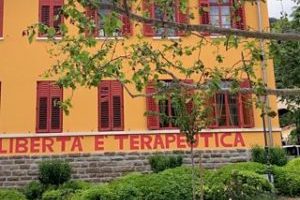From The Lancet: “For people who have never seen the Trieste model in action, it might sound too good to be true. How can any mental health system help patients with severe and chronic conditions with so few hospitalisations and so little involuntary treatment? I was once among the profound sceptics. But immersion during five visits convinced me that Trieste is the best place in the world to be a patient with a mental disorder—whereas visits to patients in prisons and on the streets of the USA convinced me that the USA is among the worst. It is startling how well patients do when they are treated well in Trieste; how much sicker they become when neglected in the USA.
Trieste’s approach is based on four principles: patients are citizens deserving dignity and respect; there is great therapeutic value in including them in the city’s daily activities; work with the community creates an inclusive social fabric that welcomes patients; and patients function best when we preserve their freedom and play to their strengths.
Trieste promotes mental health with its strong emphasis on interpersonal relations, family involvement, improved living conditions, and opportunities to work and play. Involuntary treatment, seclusion, and closed doors are eliminated in a system that is markedly caring and inviting. Neglect in the USA allows acute symptoms to become chronic, allows worse symptoms to emerge, and promotes demoralisation.”












